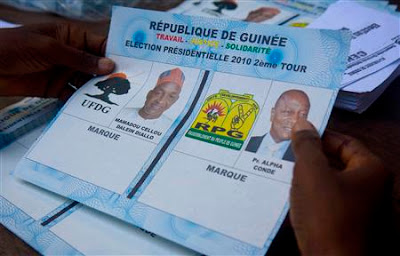UNDP: "Tackling the Costs of Gender Inequality to Africa's Development"
The United Nations Development Program (UNDP) and the African Institute for Economic Development (IDEP) have recently launched a new program which intends to advance policies which benefit men and women equally in Africa. The mission of the 'Global Gender and Economic Policy Management Initiative-Africa' program (GEPMI-Africa) is to “target government officials, development practitioners, civil society organizations and research institutes to help countries promote gender-responsive policies in specific areas such as health, education and labour.”[i] The program is a result of increasing evidence and support for economic growth through gender equality.
As increasing evidence from research on gender studies has mounted it has become clear that women’s rights are not only ethical, but also economically beneficial for developing countries. Currently, “women continue to consistently trail men in formal labor force participation, access to credit, entrepreneurship rates, income levels, and inheritance and ownership rights” which often alienates the population from gaining from development programs.[ii] This alienation hampers women from taking part in development and as a result “slows down poverty reduction and economic growth” for the population as a whole.[iii]
Alternatively, increasing access to employment, education, technology and credit in women allows this portion of the population to actively engage in development, not only to their own benefit, but to their families and local communities as well. Many studies have suggested that “putting earnings in women’s hands is the intelligent thing to do to speed up development and the process of overcoming poverty…[as] women usually reinvest a much higher portion in their families and communities than men, spreading wealth beyond themselves.”[iv]
As for development initiatives, those that are ‘gender blind’ may be missing an essential element in their purpose. Tegegnework Gettu, UN Assistant Secretary General and Director of UNDP's Bureau for Africa, noted that many “fail to take into consideration the division of labour between men and women in the private and public spheres, and their access to and control over economic assets and opportunities.” Without addressing the innate challenges to development for marginalized groups in these communities development programs risk alienating a large portion of the population they aim to serve. The GEPMI-Africa program hopes to highlight the essential need for development programs to consider gender in order to be effective.
ADDITIONAL INFORMATION
Gender and Development is a scholarly journal which focuses on the issues of its namesake: http://www.genderanddevelopment.org/
A UNDP report on “Gender and Indicators”:
http://content.undp.org/go/cms-service/download/publication/?version=live&id=1850960
The World Bank’s webpage on Gender and Development includes many studies and articles on the subject: http://web.worldbank.org/WBSITE/EXTERNAL/TOPICS/EXTGENDER/0,,menuPK:336874~pagePK:149018~piPK:149093~theSitePK:336868,00.html
A UNDP report entitled “Taking Action: Achieving Gender Equality and Empowering Women”: http://content.undp.org/go/cms-service/download/publication/?version=live&id=1844034
The ‘Africa Gender Program’ Website from the World Bank: http://web.worldbank.org/WBSITE/EXTERNAL/COUNTRIES/AFRICAEXT/EXTAFRREGTOPGENDER/0,,contentMDK:20297760~pagePK:34004173~piPK:34003707~theSitePK:502360,00.html
DISCUSSION QUESTIONS
1. Do you think development is necessarily a gender issue? Are some there some aspects that are and some that aren't?
2. What is essential to promoting gender equality in developing countries? Must laws come first? What about public attitude? Will funding lead to other changes? What is most important?
3. Are gender issues necessarily woman’s rights? How can men benefit from greater equality?
4. What could you do to aide in gender equality in a developing country?










